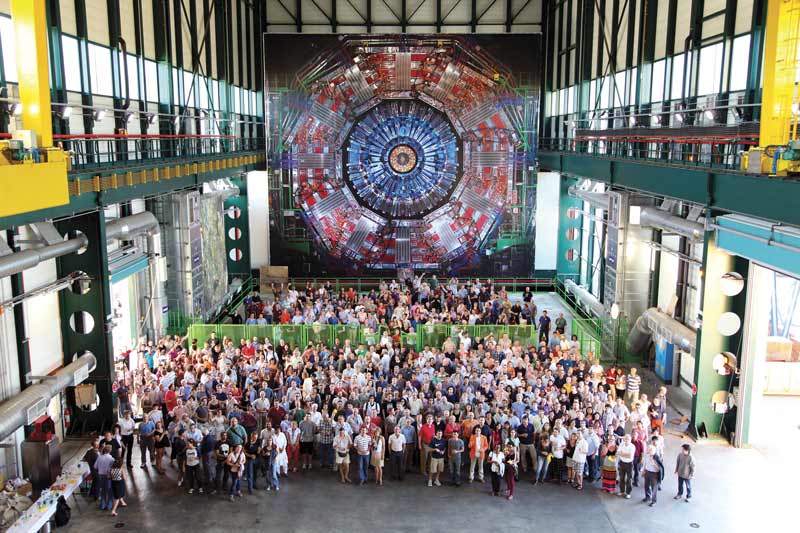What Does it Mean to be a Physicist?
Winter
2015
Feedback - Member Submissions
What Does it Mean to be a Physicist?
The Impact of an International Conference
By:Kimmy Cushman
SUNY Oneonta in New York

Cushman wrote to The SPS Observer to tell us all about the impact an international conference recently had on her. If you have thoughts to share about your undergraduate experience, write to us at feedback [at] sps.org!
Being a physicist means questioning the world around us and not settling until we can explain every phenomenon. However, this is not done in isolation, because that’s not how the universe works. Just as the burning of a star, the origin of the Moon, and the tides of the oceans are interconnected, we scientists must connect and collaborate to progress in finding the answers.
Physics collaborations tend to be international affairs. Experts from around the world come together to create a physics research community that shares advances and brainstorms new solutions to common difficulties.
An undergraduate who plays his or her cards right can integrate into that research community sooner than one may expect by getting involved in student research.
This summer I completed my first research project, as intern at the University of Notre Dame in Indiana. Not only did I work among students who were as passionate about physics as I am, but I collaborated with top researchers in nuclear physics. The fruits of my labor were more than I could have dreamed.
Support from a community network can provide so many opportunities for an undergraduate. Thanks to mine, I just returned from the 8th European Summer School on Experimental Nuclear Astrophysics in Sicily, Italy. I spent a week in a community of influential researchers, as well as graduate students and postdocs. I participated in group discussions and small, friendly debates. I even gave my first presentation at a research conference.
The international nature of the conference allowed me to see physics from a new perspective. Although we all come from different backgrounds, we all work toward understanding the same universe. That thought gave me new motivation to study, do research, and help solve the problems we are all working on.
The conference I attended in Italy may end up being the most influential factor in determining exactly where I go in my career. I am now considering taking my graduate education further abroad using the connections I have made around the world. Never did I think my career would be taking me halfway around the globe.
Is it unbelievable? No, it is my Oneonta life! //
